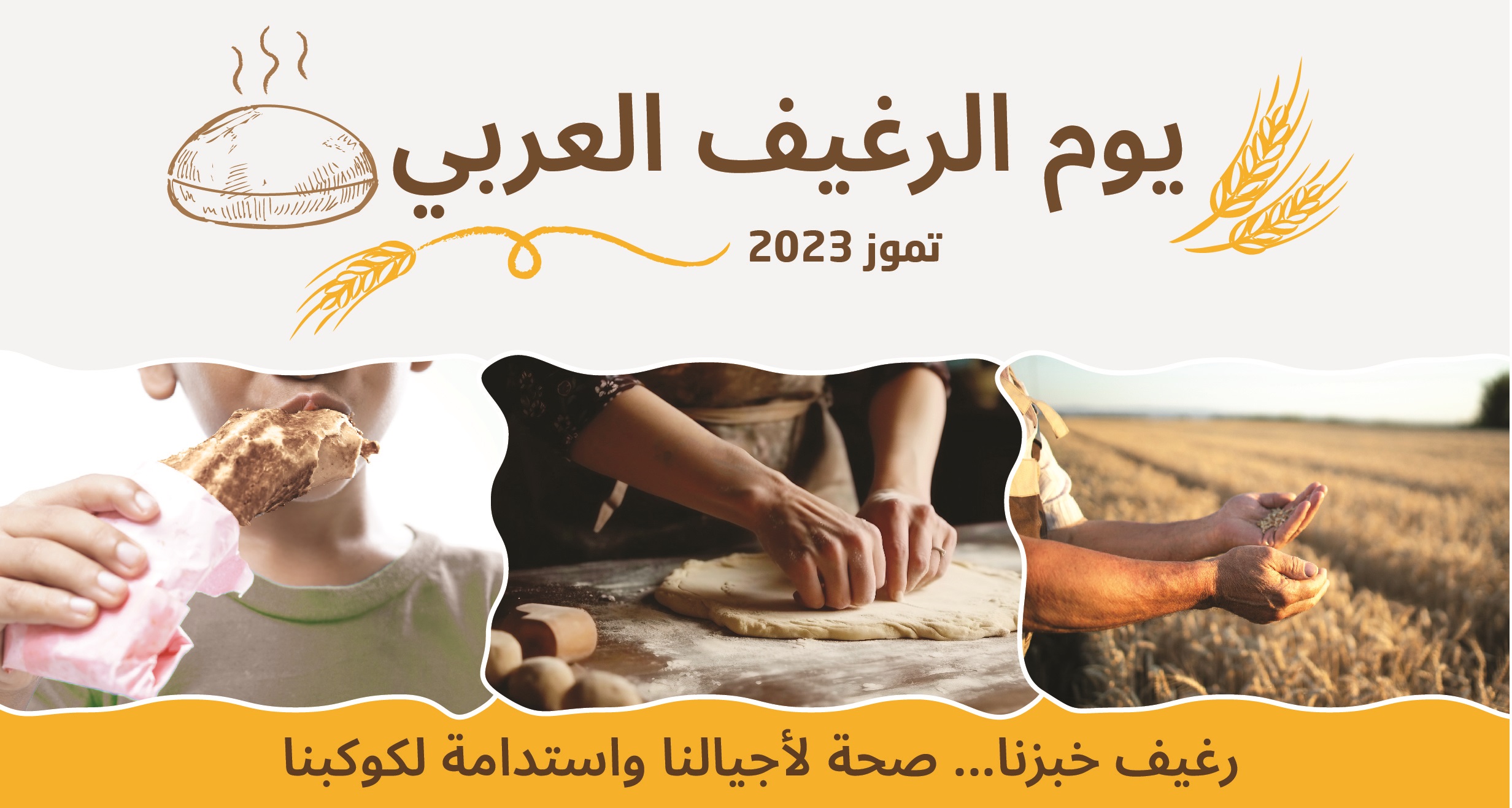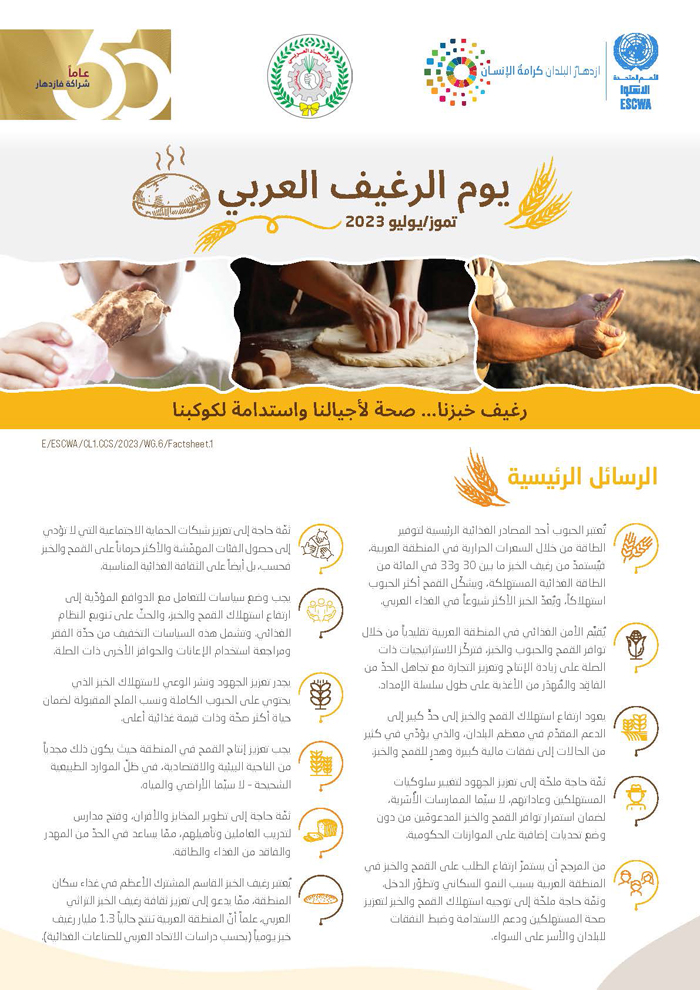Arab Bread Day is celebrated every year by the Arab Federation for Food Industries (AFFI) to mark the anniversary of the first Arab conference for the grain industry held in Jordan in 1984.
This year, ESCWA is collaborating with AFFI to celebrate Arab Bread Day 2023, under the slogan "Our Loaf... Our Strength". On this occasion, a symposium is held to shed light on the wheat and bread industry in the Arab region and discuss a number of challenges, including the impact of COVID-19, the war in Ukraine, climate change and national and regional conflicts.

